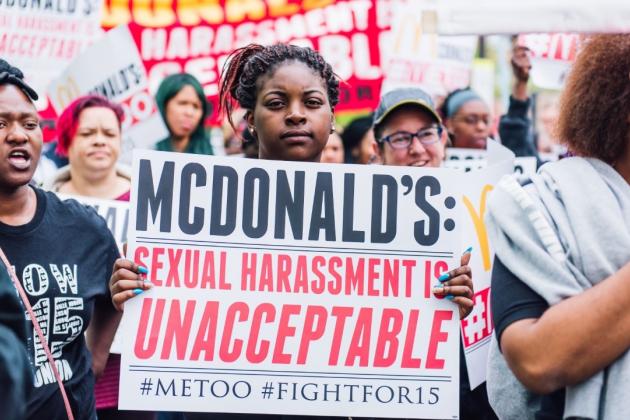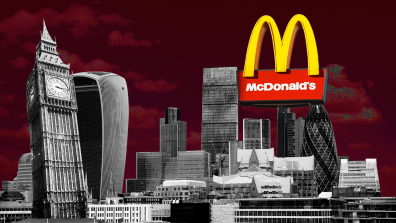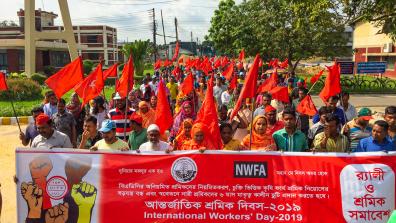Stand With Migrant Workers: End Precarious Contracts
Today, migrant workers across the UK face racism, abuse and exploitation, so we must stand for justice.
The EU referendum result has created uncertainty for us all. But for migrant workers on precarious contracts uncertainty about their future in the UK is compounded by a lack of job security and an uphill struggle to challenge workplace racism.
Racism which has been spurred on by the referendum result and the campaign that preceded it.
In reality, only by protecting the social and labour rights of all workers can we stop a race to the bottom that makes all of us insecure.
Precarious contracts
When workers have precarious contracts and face the threat of losing their job, abuse is difficult to challenge. It is no coincidence that the workers facing these conditions are often migrant and women workers.
Migrant workers often face the worst exploitation. They are often working to produce goods for the UK high street.
The best protection for workers is the protection of a trade union, but precarious contracts allow employers to fire any worker who tries to organise into a trade union. Despite these pressures trade unions continue to organise all workers.
Precarious workers face retaliation if they stand up to defend themselves from exploitation, so they need our support to challenge unfair conditions.
For more information, please download our leaflet and infosheet.
Only by protecting the social and labour rights of all workers can we stop a race to the bottom that makes all of us insecure.
Migrant worker rights
1. Right to Work: Everyone should have the right to work to provide for their basic needs. When someone doesn't have the right to work legally and can't provide for their basic needs, they often face no real choice but to work illegally. Working illegally makes workers vulnerable to extreme exploitation including modern forms of slavery. They are often afraid to approach the authorities to complain about exploitation through fear they'll be detained or deported, and treated as criminals.
War on Want believes :
- Labour rights enforcement should be separated from border control.
- Asylum seekers should be given permission to work (where their case is not resolved within six months, or they've been refused asylum but cannot be returned).
2. Equal Social and Labour Protection: Restrictions on social protection (e.g. welfare benefits) weaken workers’ ability to demand better conditions. If there’s no safety net you can’t afford to be without work: any work. These social protections will be in the firing line during the government's negotiations with the EU. Before the referendum, David Cameron attempted to restrict EU migrant workers’ access to benefits . This attack on social and labour protections will be renewed and intensified during the UK-EU negotiations. In the long run it risks driving down standards for everybody.
3. Stop Criminalising Communities: Border control is being extended well past the border: immigration raids are happening in communities up and down the country; private landlords now have to check the immigration status of tenants; and doctors and nurses are being asked to check patient's immigration status. People are being forcibly removed from their communities and detained indefinitely. This extension of the border regime overwhelmingly affects black and minority ethnic communities, far wider than the 'illegal' immigrants it is said to target. It creates suspicion, division and tension within communities and must end.
Sports Direct Shame campaign
Imagine you are pregnant, and having started labour you still go to work for fear of losing your job. This is not a story from an overseas sweatshop, it happened in the Sports Direct warehouse in Shirebrook, Derbyshire.
When precarious contracts mean workers can be fired at will, abuse is difficult to challenge. It’s no coincidence that the workers facing these conditions are largely migrant workers from Eastern Europe and women workers face the worst abuse: with new workers at the Sports Direct warehouse being referred to as “fresh meat”.
War on Want supported Unite the Union’s Sports Direct Shame campaign to give the protection of a union to all workers and end the abuse of precarious contracts.
If we come together we can stop this race to the bottom, and win protection at work for everyone.
What are Precarious Contracts?
Precarious contracts are contracts where the worker can’t be certain what work they will get in the future. These can take many forms.
Zero Hour Contracts: The worker has no guaranteed hours at all. Their employer asks them to work when they want and can stop giving them work at any time.
Agency Workers: Sometimes called temps, these workers are not classed as employees. Whilst they have some basic employment rights, they are not guaranteed future work and can be fired at any time.
Short Hour Contracts: These are similar to zero hour contracts, but do guarantee some hours, but often a lot less than the worker will actually work. This means an employer can cut back their hours drastically at any time.
Fixed Term / Temporary Contract: These contracts end on a particular date, or when a project or task is complete. Often workers are kept on temporary contracts repeatedly under the threat of non-renewal.

End sexual harassment at McDonald's
McDonald’s has a sexual harassment problem. Email McDonald’s UK CEO Paul Pomroy
Take action


